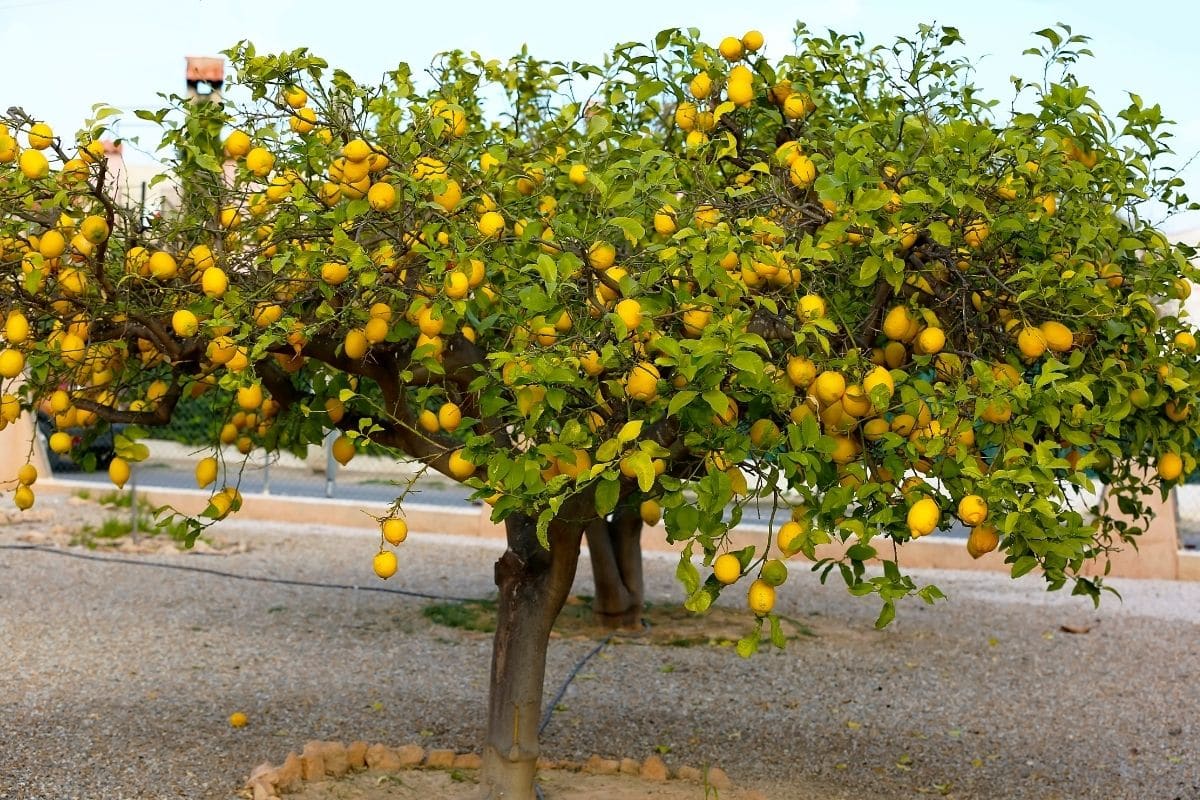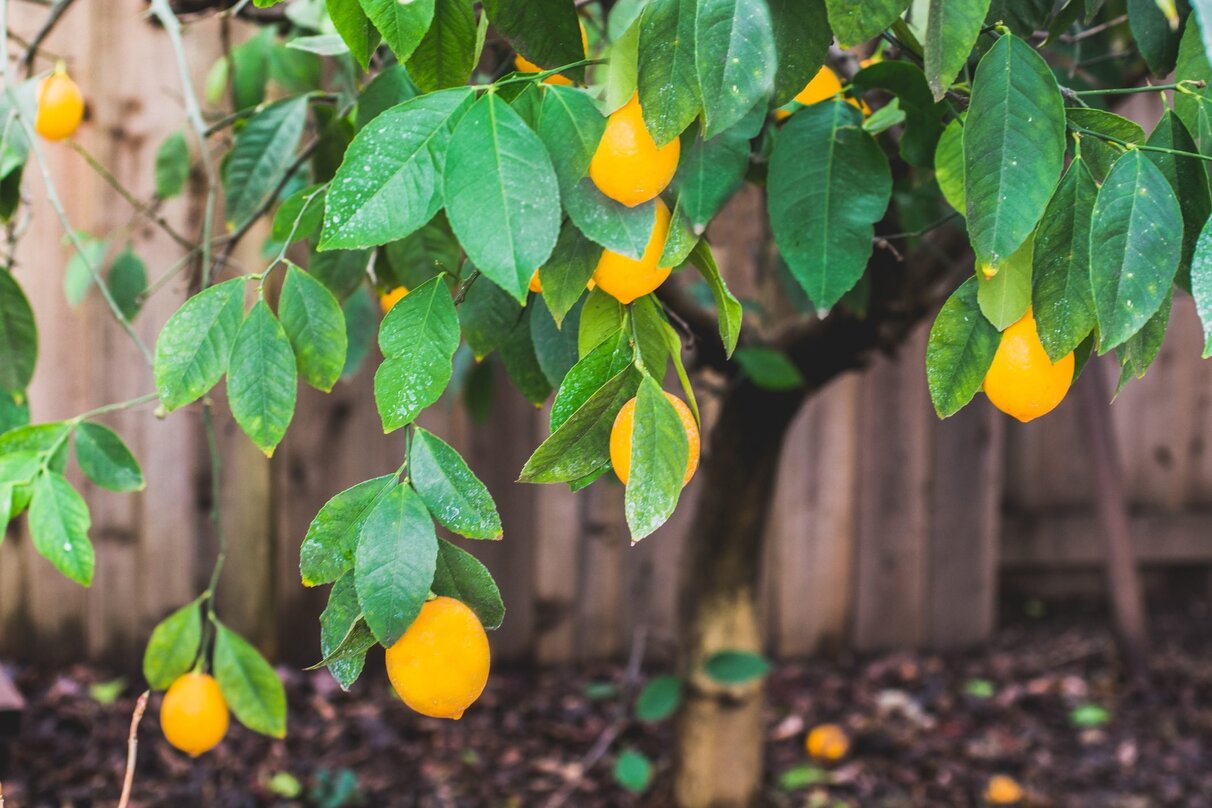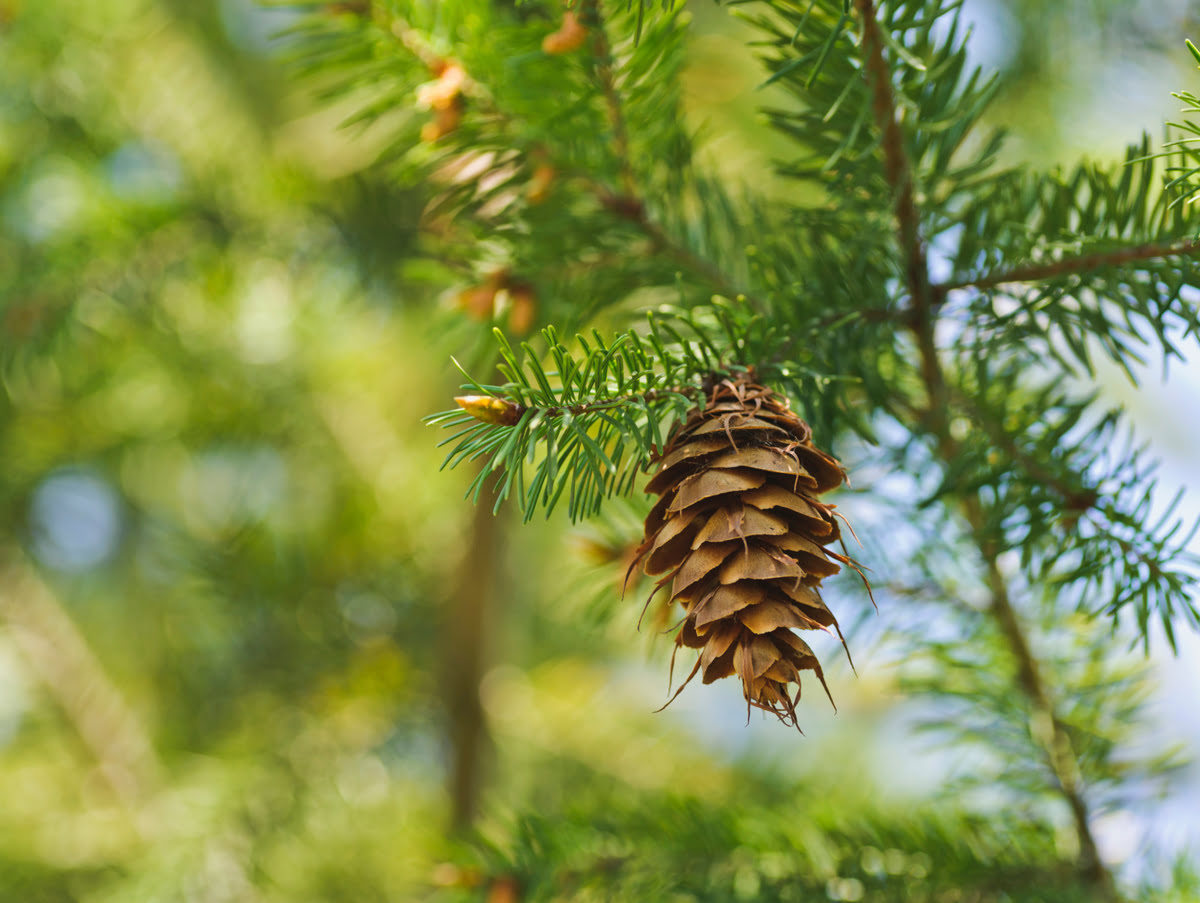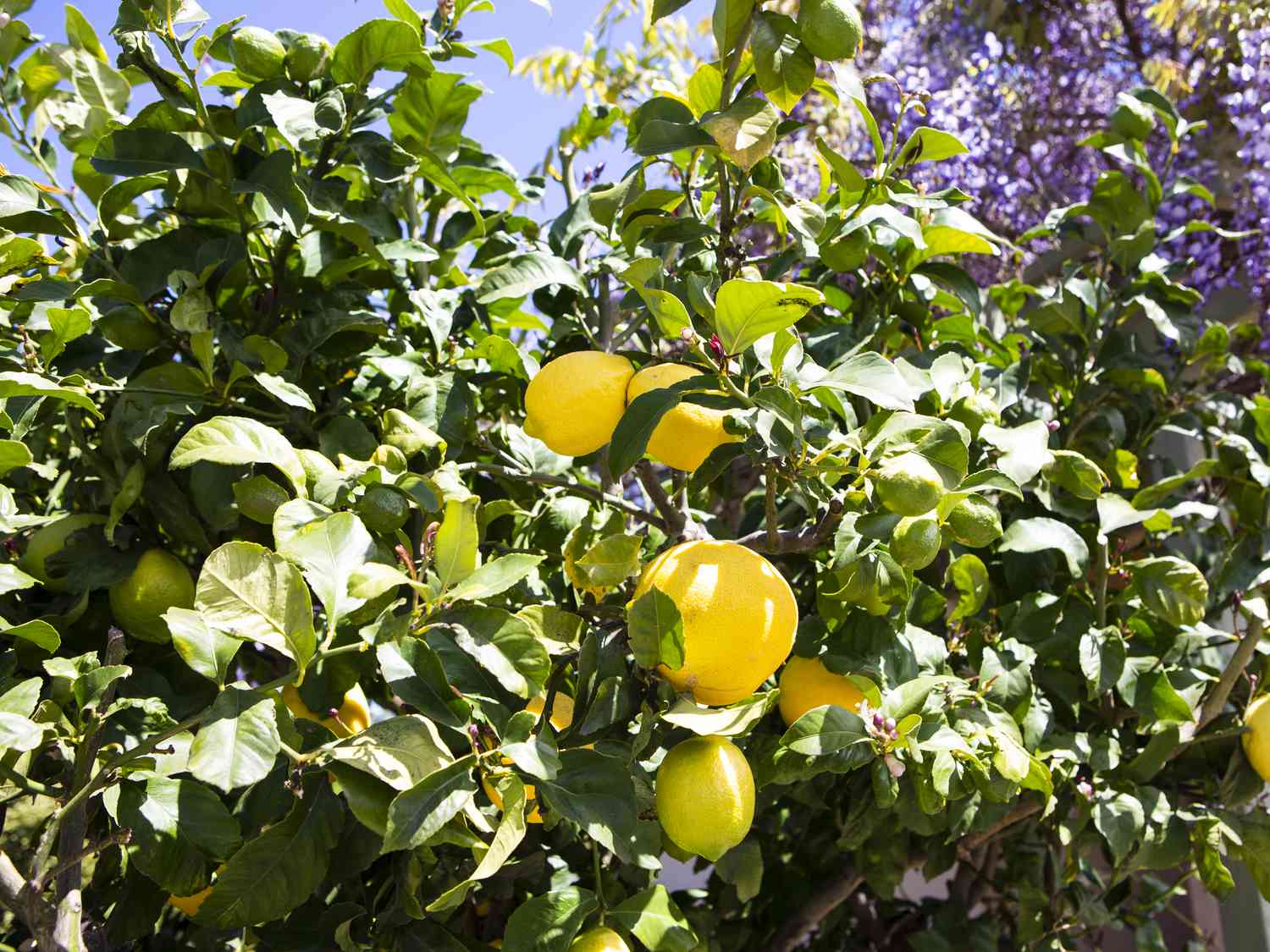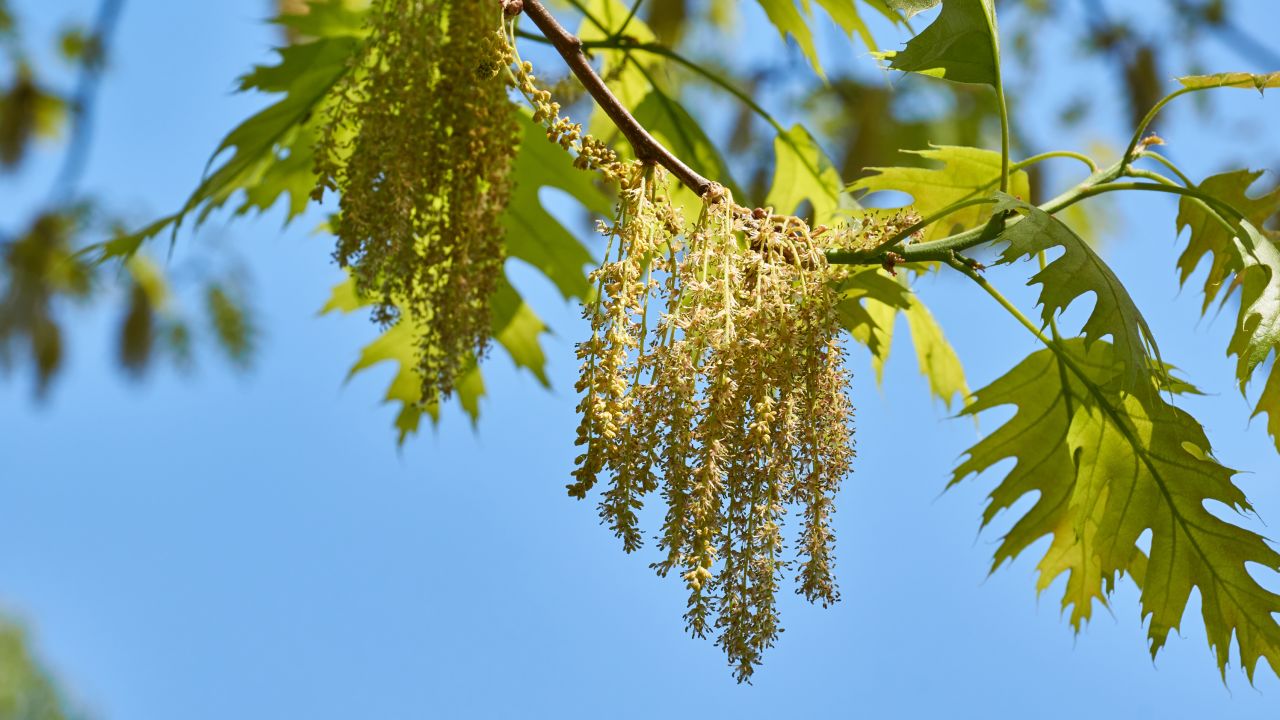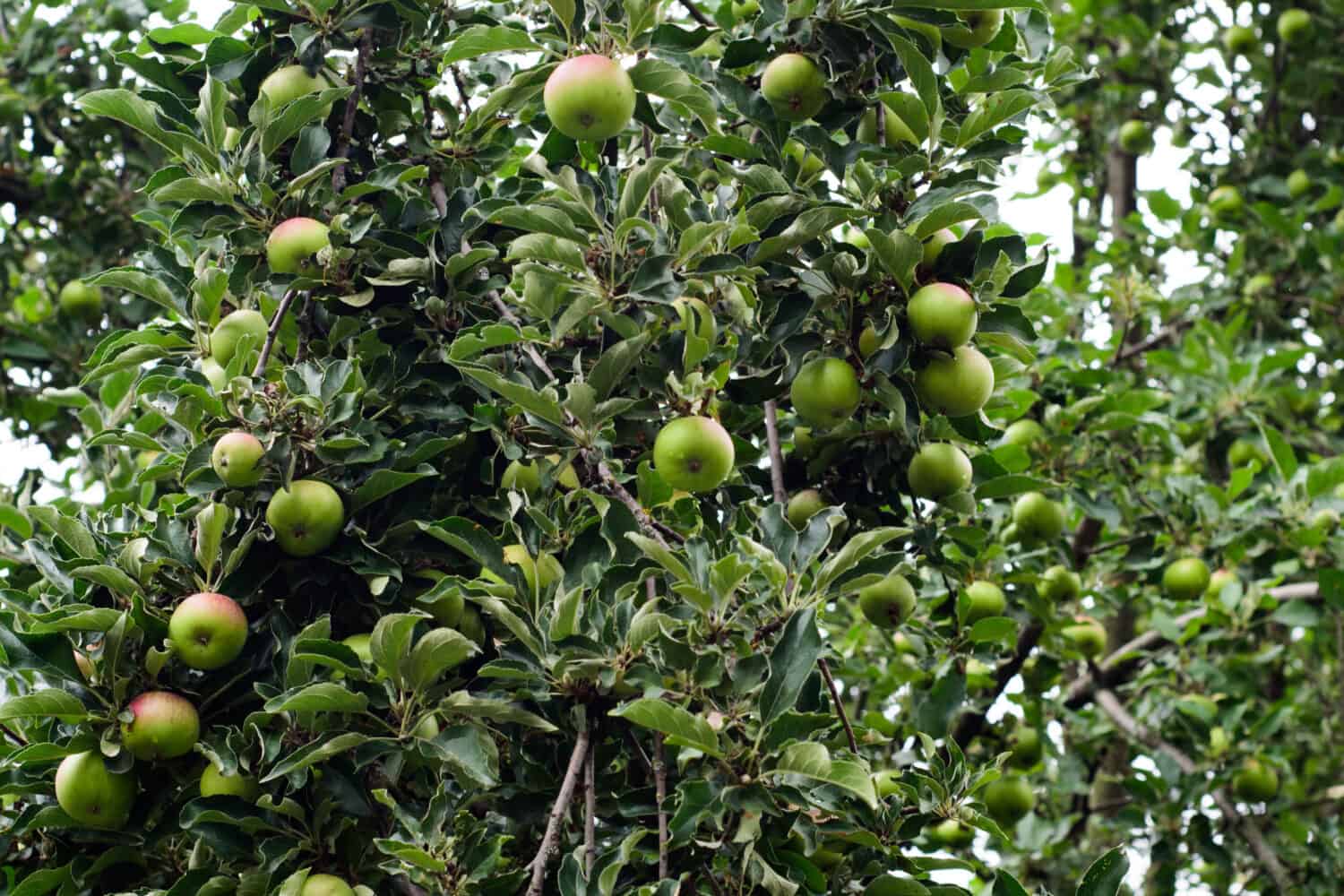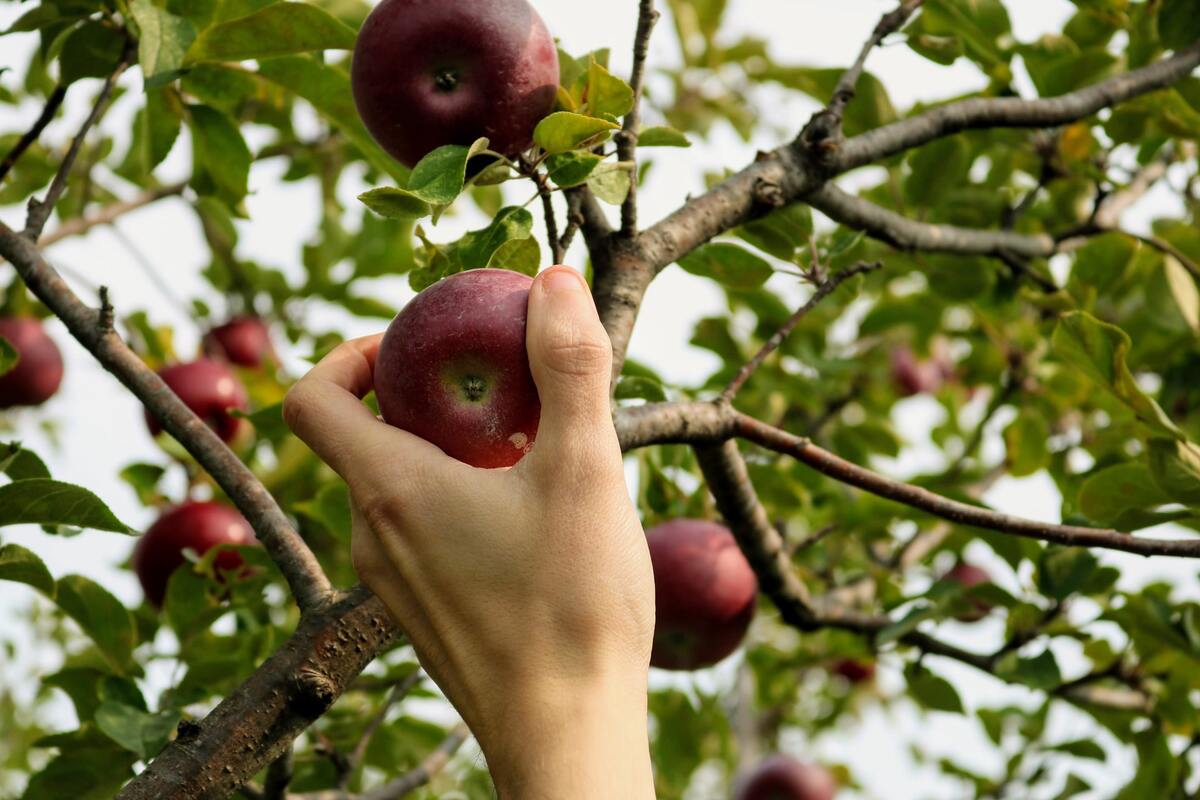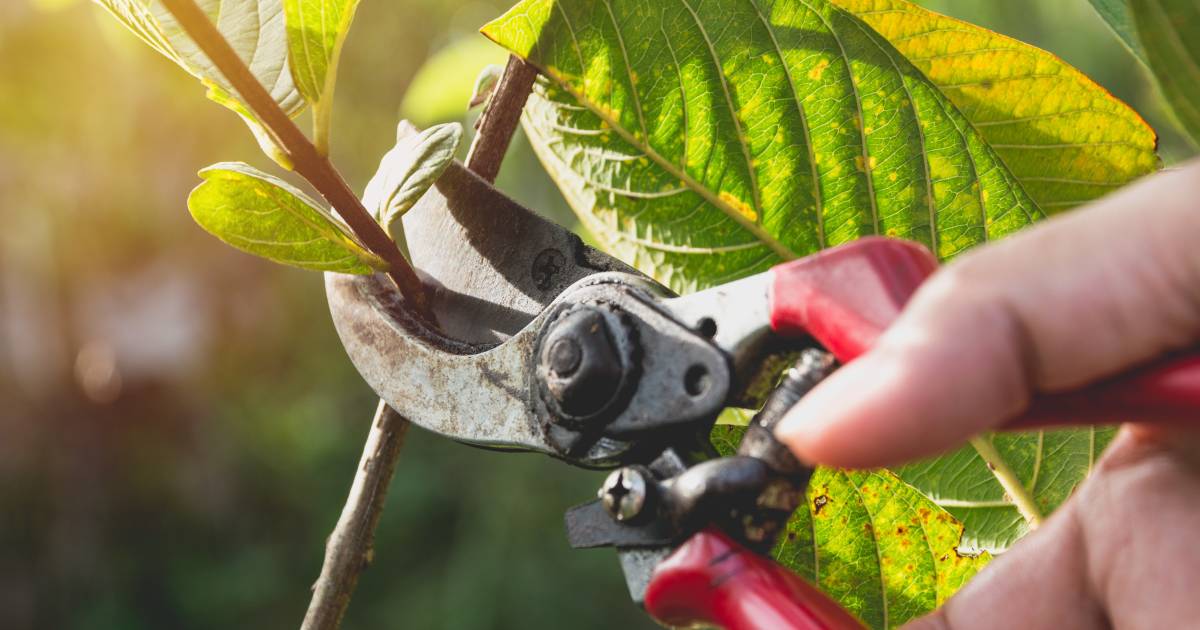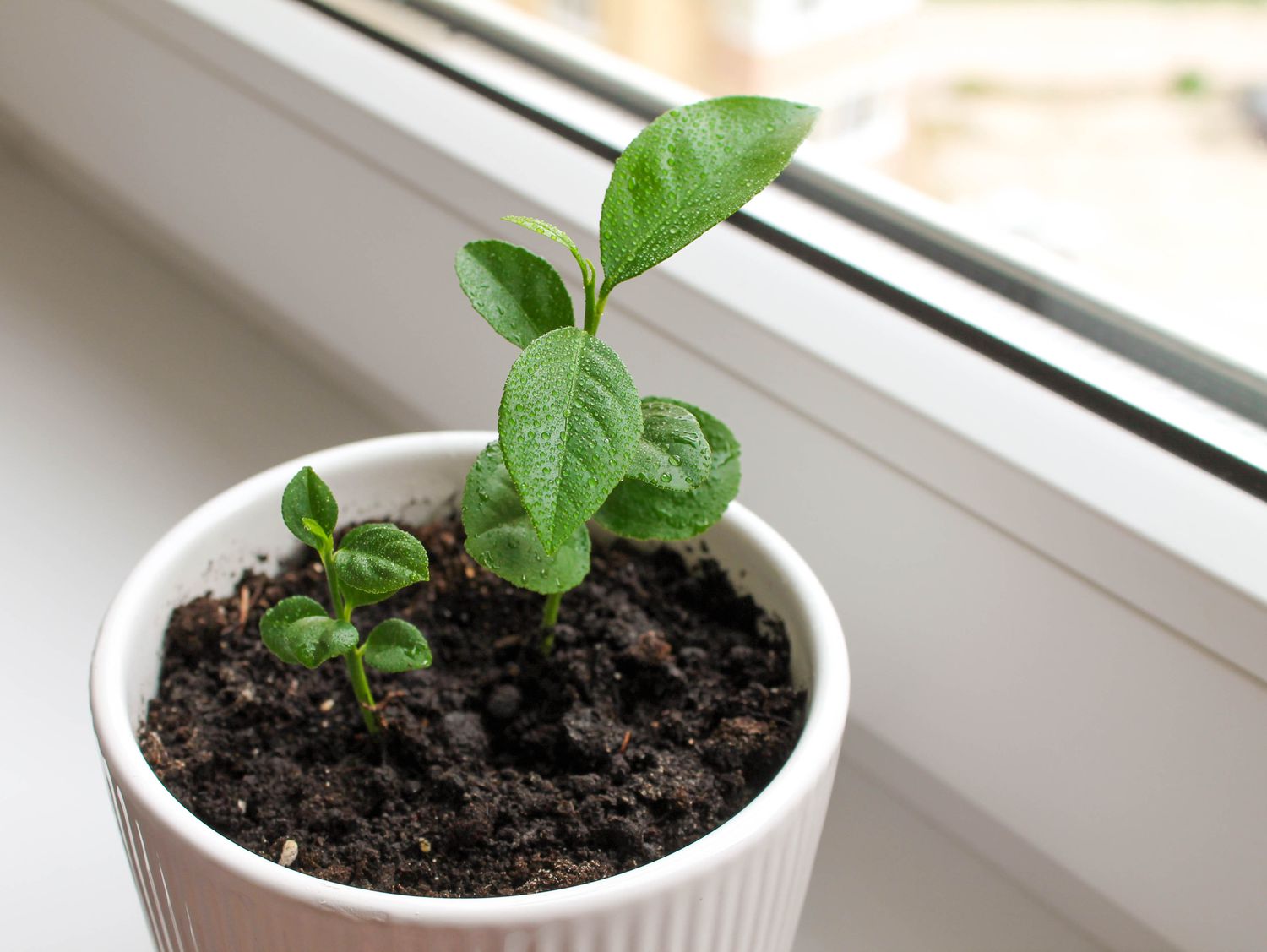Home>Types of Gardening>Edible Gardening>When Do Lemon Trees Produce Fruit
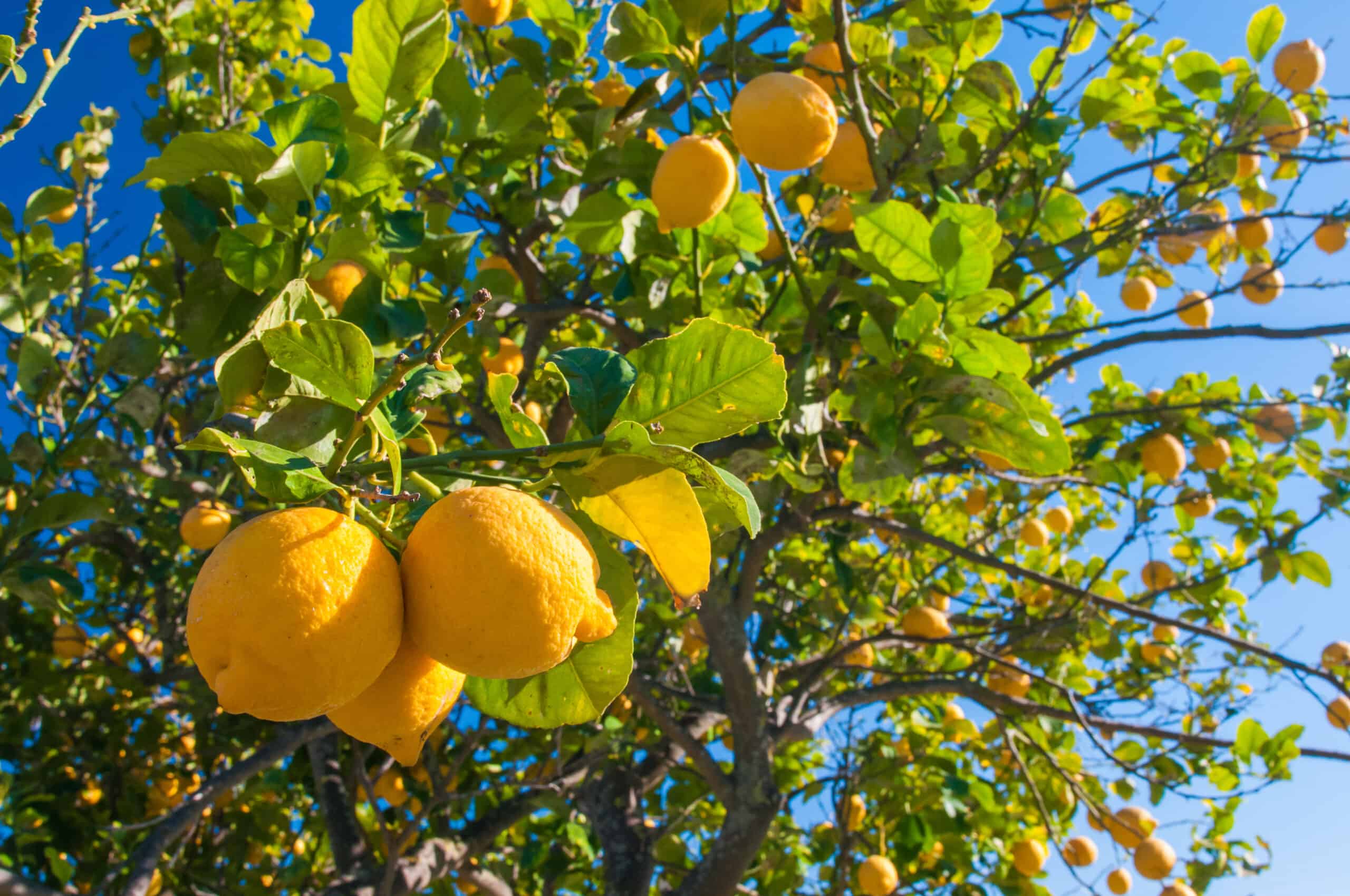

Edible Gardening
When Do Lemon Trees Produce Fruit
Published: October 30, 2023
"Discover the timeline of when lemon trees start bearing fruit and get expert tips on edible gardening. Find out how to grow your own lemon trees and enjoy the delicious fruits!"
(Many of the links in this article redirect to a specific reviewed product. Your purchase of these products through affiliate links helps to generate commission for Chicagolandgardening.com, at no extra cost. Learn more)
Table of Contents
Introduction
Welcome to the world of edible gardening, where you can transform your outdoor space into a vibrant oasis of fresh and flavorful produce. One of the most popular and rewarding plants to grow in your garden is the lemon tree. Not only do lemon trees add beauty and fragrance to your landscape, but they also provide you with a bountiful harvest of juicy and tangy fruits.
Whether you’re a seasoned gardener or just starting out, understanding the life cycle and fruit production of lemon trees is essential. By knowing when to expect fruits and how to optimize their growth, you can ensure a successful and rewarding gardening experience.
In this article, we will delve into the fascinating world of lemon trees and explore the factors that impact their fruit production. From understanding the maturation period to creating optimal conditions in your garden, we will guide you through the journey of growing luscious lemons.
So, if you’ve ever wondered when your lemon tree will start producing fruits and how to maximize its harvest, you’ve come to the right place. Let’s dig in and uncover the secrets of lemon tree fruit production.”
Understanding Lemon Trees
Before diving into the details of fruit production, it’s important to have a basic understanding of lemon trees. Lemon trees, scientifically known as Citrus limon, are evergreen plants that belong to the Rutaceae family. They are native to Asia but are widely cultivated in many parts of the world due to their desirable fruit.
These trees can reach a height of up to 20 feet and have glossy green leaves that release a refreshing citrus scent when crushed. Lemon trees typically start producing fruits when they reach between three and five years of age, although some varieties may produce fruit earlier.
One of the unique characteristics of lemon trees is their ability to bear fruits throughout the year, but they tend to have peak fruiting seasons. The exact timing of fruit production can vary depending on various factors such as the variety of lemon tree, geographical location, and growing conditions.
Furthermore, lemon trees require specific environmental conditions to thrive. They prefer full sun exposure, well-draining soil, and moderate watering. Proper care, including regular pruning and fertilization, is necessary to ensure healthy growth and abundant fruit production.
Now that you have a general understanding of lemon trees, let’s explore the life cycle and fruit production process in more detail.
Life Cycle of Lemon Trees
The life cycle of a lemon tree can be divided into several distinct stages, each with its own unique characteristics. Understanding these stages is crucial for predicting when your lemon tree will start producing fruit and how to care for it throughout its life. Let’s explore the life cycle of lemon trees:
- Germination: The life cycle begins with the germination of a lemon tree seed. This stage is often facilitated by soaking the seeds in water overnight, which helps soften the seed coat and promote germination. Once the seeds start to sprout, they can be transferred to a well-draining seedling tray or pot.
- Seedling: The seedling stage is characterized by the development of a young lemon tree from the germinated seed. During this stage, it is important to provide the seedlings with ample sunlight, water, and nutrients to promote healthy growth. Seedlings typically take a few months to reach a size suitable for transplantation.
- Transplantation: Once the seedlings have reached a certain size, they can be transplanted into larger pots or directly into the ground. This stage marks the beginning of the lemon tree’s growth in its permanent location. It is crucial to select an appropriate planting site that offers full sun exposure and well-draining soil.
- Vegetative Growth: After transplantation, lemon trees enter a phase of vegetative growth. During this stage, the tree focuses on developing a sturdy trunk and a strong root system. This growth period can last for several years, during which regular pruning and fertilization help shape the tree and encourage healthy foliage development.
- Flowering: The flowering stage is an exciting time for lemon tree growers as it signals the imminent production of fruit. Lemon trees bear fragrant white flowers, known as blossoms, which typically appear in clusters. Each blossom has the potential to develop into a fruit under optimal conditions.
- Fruit Production: Once pollination occurs, the fertilized blossoms start to develop into fruits. The duration from flower to fruit maturity can vary depending on the lemon tree variety and environmental conditions. Generally, it takes around six to nine months for lemons to fully ripen and become ready for harvest.
Understanding the different stages of a lemon tree’s life cycle allows you to anticipate when to expect fruit production and provide appropriate care during each phase. With this knowledge, you can nurture your lemon tree and maximize its fruit yield.
Factors Affecting Lemon Tree Fruit Production
While lemon trees are generally known for their ability to produce abundant fruits, several factors can influence the quantity and quality of the harvest. Understanding these factors and how to manage them is essential for ensuring optimal fruit production. Let’s explore some of the key factors that can affect lemon tree fruit production:
- Age of the Tree: Lemon trees typically take between three to five years to start bearing fruit. Younger trees may produce smaller harvests compared to mature ones. Patience is key when it comes to lemon tree fruit production.
- Variety of Lemon Tree: Different lemon tree varieties have varying growth habits and fruiting patterns. Some varieties may produce fruit year-round, while others have specific peak seasons. It’s important to choose a variety that suits your climate and desired fruiting time.
- Pollination: Lemon trees require pollination for the blossoms to develop into fruits. While some lemon tree varieties are self-pollinating, others may benefit from cross-pollination with another compatible citrus tree. Bees and other pollinators play a crucial role in the pollination process, so it’s important to provide a pollinator-friendly environment in your garden.
- Climate and Weather: Lemon trees thrive in warm climates with mild winters, but they can tolerate a range of temperature conditions. Extreme cold or frost can damage the tree and affect fruit production. Similarly, excessive heat or prolonged periods of drought can stress the tree and reduce fruit yields. Providing adequate protection and maintaining appropriate watering schedules are essential for mitigating the impact of climate and weather on fruit production.
- Soil Conditions: Lemon trees prefer well-draining soil with a slightly acidic to neutral pH level. Poor soil quality can impede root development and nutrient uptake, leading to reduced fruit production. Regular soil testing and amendments can help create an optimal soil environment for your lemon tree.
- Pruning and Maintenance: Proper pruning of lemon trees helps maintain their shape, remove dead or damaged branches, and promote healthy growth. Pruning also enhances airflow and sunlight penetration, which can improve fruit production. Regular maintenance practices, such as fertilization and pest control, are also crucial for ensuring the tree’s overall health and productivity.
By paying attention to these factors and implementing appropriate strategies, you can create conditions that promote healthy growth and maximize fruit production in your lemon tree.
Maturation Period of Lemon Trees
The maturation period of lemon trees refers to the time it takes for the fruits to fully develop and ripen on the tree. The duration from flower to mature fruit can vary depending on various factors, including the lemon tree variety, environmental conditions, and cultural practices. Let’s delve into the maturation period of lemon trees and what factors can influence it:
On average, it takes around six to nine months for lemons to reach full maturity. This timeframe can vary based on the lemon tree variety and growing conditions. Some varieties may have a shorter maturation period, while others may take longer to develop ripe fruits.
The maturation process goes through several stages, starting with the fertilization of the blossoms. After successful pollination, the blossoms transform into small green fruits. Over time, these fruits grow in size and gradually transition in color from green to yellow. The skin becomes smoother and develops its characteristic texture as the fruit matures.
During the maturation period, the internal components of the lemon also undergo changes. The acidity level decreases, resulting in a less tart taste, while the sugar content increases, giving the fruit its familiar sweet and tangy flavor profile.
Several factors can influence the maturation period of lemon trees:
- Lemon Tree Variety: Different lemon tree varieties have varying maturation periods. Some varieties, such as the Meyer lemon, have a shorter maturation period of around six months, while others may take up to nine months to fully ripen.
- Environmental Conditions: The climate and weather conditions in your region can affect the maturation process. Lemon trees thrive in warm climates with temperatures ranging from 70 to 85 degrees Fahrenheit. Consistent sunlight and appropriate moisture levels are crucial for fruit development. Extreme cold or heat can hinder growth and prolong the maturation period.
- Cultural Practices: Proper care and maintenance practices can influence the maturation period of lemon trees. Providing adequate water, fertilizers, and organic matter to the soil can promote healthy growth and accelerate the maturation process. Conversely, nutrient deficiencies or excessive fertilizer applications can delay fruit development.
- Pest and Disease Management: Proper pest and disease control is essential to ensure uninterrupted fruit development. Pests such as aphids, mites, and citrus leaf miners can damage the fruit and slow down the maturation process. Regular monitoring and appropriate pest management strategies help protect the tree and promote timely fruit maturation.
By providing optimal growing conditions and implementing proper care practices, you can help facilitate a timely maturation process for your lemon trees, resulting in a bountiful harvest of delicious homegrown lemons.
Optimal Conditions for Lemon Tree Fruit Production
To ensure robust fruit production and maximize the yield of your lemon tree, it’s essential to create optimal growing conditions. Lemon trees thrive in specific environments that provide the necessary nutrients, sunlight, water, and care. Let’s explore the key factors that contribute to optimal conditions for lemon tree fruit production:
- Sunlight: Lemon trees require full sun exposure to thrive and produce abundant fruits. They need a minimum of 6-8 hours of direct sunlight daily. Plant your lemon tree in a location where it receives ample sunlight to promote healthy growth and ensure optimal fruit development.
- Well-Draining Soil: Lemon trees prefer well-draining soil to prevent the roots from becoming waterlogged. Soil with sandy or loamy texture is ideal. Avoid heavy clay soils, as they can lead to poor drainage and root rot. Consider amending the soil with organic matter like compost or aged manure to improve drainage and nutrient availability.
- Watering: Adequate watering is crucial for the development of healthy lemon tree fruits. While lemon trees require regular watering, it’s important to avoid both overwatering and underwatering. Provide enough water to keep the soil moist, but not waterlogged. Frequent but shallow watering is recommended, especially during the hotter months.
- Fertilization: Lemon trees benefit from regular fertilization to ensure they receive the necessary nutrients. Use a balanced citrus-specific fertilizer that provides essential micronutrients such as nitrogen, phosphorus, and potassium. Follow the manufacturer’s instructions for application rates and timing to prevent overfertilization, which can lead to excessive foliage growth at the expense of fruit production.
- Pruning: Proper pruning helps maintain the shape and size of the lemon tree, enhances airflow, and stimulates fruit production. Remove dead, damaged, or crossing branches and thin out the canopy to allow sunlight to reach the inner branches. Pruning also helps control the height of the tree for easier access to fruits and maintenance.
- Pest and Disease Control: Regular monitoring and appropriate pest and disease management measures are essential for healthy fruit production. Common pests that affect lemon trees include aphids, scale insects, and citrus leaf miners. Use organic and chemical control methods as necessary, ensuring the safety of beneficial insects and the environment.
- Climate: Lemon trees thrive in regions with Mediterranean-like climates, characterized by mild winters and warm summers. If you live in a colder climate, consider planting your lemon tree in a container that can be moved indoors during the winter months. Protect the tree from extreme cold, frost, and strong winds, as they can damage the foliage and reduce fruit production.
By providing optimal conditions, you can promote the health and productivity of your lemon tree, ensuring a plentiful harvest of delicious and juicy lemons for years to come.
Conclusion
Growing a lemon tree and nurturing it to produce an abundant harvest of juicy and tangy fruits is a rewarding experience for any edible gardener. Understanding the factors that affect fruit production and creating optimal conditions are key to maximizing the yield of your lemon tree.
From germination to mature fruit, lemon trees go through various stages in their life cycle. It takes patience and proper care for a lemon tree to reach its fruit-bearing age, typically between three to five years. Factors such as pollination, climate, soil conditions, and maintenance practices can influence the quantity and quality of fruit production.
By providing optimal conditions, including ample sunlight, well-draining soil, and appropriate watering and fertilization, you can help your lemon tree thrive and produce an abundance of fruits. Regular pruning and pest control also play a crucial role in ensuring the tree’s health and productivity.
Remember that different lemon tree varieties have their own unique traits and maturation periods, so choose the variety that suits your climate and desired fruiting time. Be mindful of environmental factors such as temperature extremes and frost, adapting your care practices accordingly to protect the tree.
With proper attention and care, you can enjoy a continuous harvest of homegrown lemons from your lemon tree. So, roll up your sleeves, dig into the world of edible gardening, and embark on the journey of growing your very own lemon tree. The satisfaction of plucking a fresh lemon from your tree and using it in your culinary creations is truly unparalleled.
Happy gardening and may your lemon tree flourish and bear fruit for years to come!
